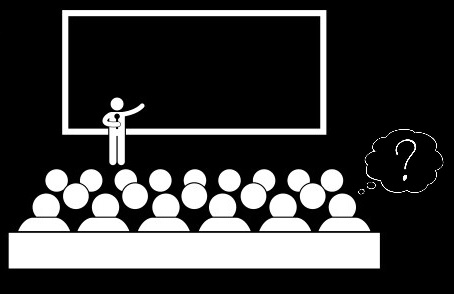Recontextualize
By Anthony Casperson
6-1-24
When I was in bible college, I took a class that focused on teaching ministries in the church. Its professor had experience in both this topic and counseling. So, I felt at the time that I’d enjoy the class.
But the problem was that this professor taught in a style that went outside of my typical expectations. He said as much during one class session while talking about different learning styles.
And when it came to papers, projects, and tests, I felt unsure of what he wanted. As I see it, half of the grade in a class comes down to understanding the teacher. And with this one, I could not wrap my head around what he wanted.
Ultimately, this class was one of three in which I received a less-than-stellar grade. (The other two I’ve talked about before. And are outside of my point at the moment.) Therefore, I decided I would never take another class taught by him ever again. I just could not understand him. And felt that I never would.
A short time after that class was over, I sat in my first semester of Hebrew. And before the first day of that class started, in walked this professor. He wasn’t the teacher, so I and my fellow classmates wondered if there was some mix up. But this professor said that he’d always wanted to learn Hebrew, so he was there as our fellow student. And then he sat in the desk next to me. Needless to say, I felt uncomfortable in the moment.
Sometime early on in the semester, this professor suggested that any of us who wanted to study for a big test in the class could come over to his house and study together. It was that night of studying which began my journey to understand him.
Seeing this professor in a different context helped recontextualize my understanding of him. Literally taking a moment to look at him from a context other than as professor with whom I don’t gel, helped me see something of his mind—which was far different from mine.
As a matter of fact, whenever another context popped up, my perspective on his thought process grew. Like when he and I talked about things outside of school. His daughter was friends with one of the teens in the youth group I led, so we had some interesting conversations that way.
And I talked about some of my depressive thoughts with him, which were at the beginning stages of my attempt to understand myself. He even eventually asked for me to have lunch with him once a week for a couple of months so that he could counsel me. I mean, he was the first one to ask me when I was going to write a book about my own struggles with these thoughts—something that was deeply on my mind when I wrote Hydroponic Spirituality.
The moment came a year or so later when I had the opportunity to take a counseling class that he taught. I was a little scared, sure. I didn’t want another bad grade, but the recontextualization process that I’d experienced gave me the confidence to try the very thing I swore that I’d never do again. And although grades aren’t the most important thing, I aced this second class.
He became one of my favorite professors from bible college.
All because I took the time to put my preconceived notions of him to the side, and looked at him from another perspective. And the truth that I learned because of it was much more than grades could ever mean.
This idea of recontextualization can help us in many situations. It can show us more about a person so that we can better empathize. Give us greater depth to their character. And even help us realize that the grumpy old meanie we stay far away from is anything but what we thought they were for the longest time.
It’s that last one which I hope to deal with in this summer’s blog series that I’m introducing today—but will really start next week. And the person whom I hope to help us recontextualize is God, particularly in the Old Testament.
Many people in western culture who think about the representation of God in the OT will see him as a harsh, judgmental prosecutor who only keeps laying on new rules. They’ll even make a point to say that the grace we see of Jesus in the New Testament is so different than what we see of God in the OT that they have to be different.
And this includes many in the church.
But this dichotomy of God in the OT and NT is the very thing taught by the first person in Church history branded as a heretic. There had been many differences of teaching throughout the early centuries of Christendom. Many teachings called a false gospel. But this idea of the “God of the OT” and “God of the NT” being different beings was the first time that the title “heretic” was laid on a person. His teaching was so diametrically opposed to the only God of the bible that a new term came into being.
So, we should be careful to not feel this way about God.
Honestly, I feel that this heretical idea rears its head because many are shown only one context of God in the OT, and then see Jesus and wonder how the two can be the same. But the fact of the matter is that if we take the time to really look at God from a different context, we might just come to understand him. And maybe, we’ll come to view him as the loving and faithful, gracious and true God that is.
No matter which part of the bible that we look at.



